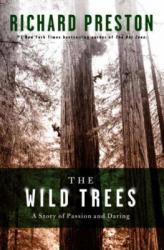
You might know Richard Preston from his nonfiction thriller The Hot Zone or Micro, a techno-thriller Michael Crichton started before his untimely death in 2008. Although the subject matter of The Wild Trees is very different from these works, it continues Preston’s trend of combining scientific detail with narrative finesse. Specifically, this book focuses on the California redwoods, but readers will learn as much about the redwoods themselves as they will about the men and women who study them. Steve Sillett, for instance, started climbing redwoods freehand without any equipment to break his fall. Considering some redwoods are nearly 400 feet tall, this feat is as awe-inspiring as it is terrifying.
This book also provides fascinating detail on redwood canopies, which house salamanders, copepods (a type of crustacean), and even other trees! Thanks to Preston’s meticulous research and eye-popping descriptions, readers will feel like they’re exploring the redwoods alongside him.
The Wild Trees is a must-read for anyone who loves the redwoods or nature in general.
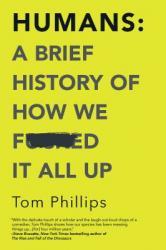
A thoroughly entertaining account of how far modern humans have come and how often they messed it up in groan-worthy ways despite best intentions. Journalist and humor writer Tom Phillips relies on sound scholarship to inform, entertain and maybe demoralize (in a funny way) the reader. Examples run the gamut from a Chinese emperor who stored gunpowder in his palace then hosted a lantern festival, the inadvertent forensics pioneer/lawyer defending an accused murderer who proved to the jury that the victim may have accidentally shot himself by accidentally shooting himself, the Austrian army that attacked itself one drunken night, and other equally spectacular blunders of modern times.
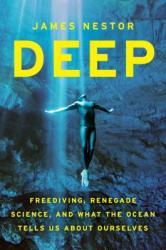
James Nestor’s book Deep: Freediving, Renegade Science, and What the Ocean Tells Us about Ourselves is both literally and figuratively the most breathtaking book I’ve ever read. It’s literally breathtaking because it’s about freediving, AKA diving sans scuba equipment, an activity as awe-inspiring as it is dangerous. (Side effects may include death, blood squirting out of your nose, mouth, and eyeballs, and paralysis.) Herbert Nitsch, the world’s self-proclaimed “deepest man” dove more than 800 feet on a single breath without using a scuba tank. And he lived to tell the tale.
Deep is also figuratively breathtaking because it reveals some of the most awe-inspiring facts about our ocean that you’ll ever read. Freediving is the only way to see sperm whales up close and personal. These behemoths' brains are shockingly similar to our own and allow them to communicate using a click-based language. Resulting studies have even shown that sperm whales have their own culture and distinct accents.
But freediving with sperm whales is, naturally, not without risks. Sperm whales’ clicks are so loud, their pulsations can literally kill us. One intrepid freediver found his hand temporarily paralyzed when a sperm whale greeted him with a click.
Deep is the rare sort of nonfiction book that reads like a thriller novel. Every page is chock-full of awe-inspiring revelations that will make you look at the sea with a sense of wonder typically reserved for children. Scientific journalism has never been this entertaining.
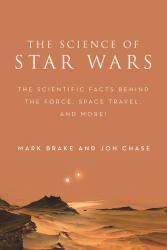
The Science of Star Wars by Mark Brake and John Chase is a fantastic read!
Explaining the science behind Star Wars the movie series through
understandable language and with humorous tone, the authors explore the
possibilities of realizing some of the fantasies of the galaxy far, far,
away. They also explain why some concepts in Star Wars will never be possible
in our own home. This book is appropriate for readers 16 and up. As a Star
Wars and science fan myself, I would definitely recommend this book.
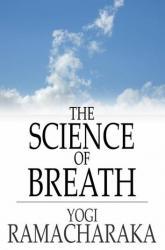
In the Science of Breath, by author Yogi Ramacharaka teaches about
deep breathing. He teaches of the incredible scientifically-proven benefits
to health, spirit, and mind through this simple act of something we already
need to survive—breathing. Captivating and engaging, this book grips
readers and equips them with knowledge to improve their moods, health, and
life. This book is appropriate for ages 14 and up. Anyone with an interest in
lowering stress, or simply with an interest in the science of breath, would
enjoy this book.
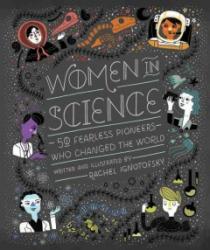
Women In Science, by Rachel Ignotofsky and Sarah Mollo-Christensen, provides
an overview of the lives of fifty women who contributed greatly and, in the
authors’ words, “fearlessly”, to the scientific field. In the book,
these fifty women’s contributions to science are highlighted and described.
Well and engagingly written, this book is an important read for any young
woman interested in the scientific field. By teaching us about the lives of
these women, the authors encourage young women to pursue their passions in
the sciences by showing previous women who have paved the way. I would
recommend this book to readers ages 12 and up. The book is appropriate for
anyone interested in the STEM field and women’s contributions to it.
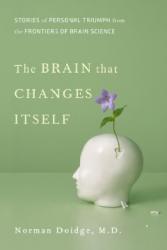
Dr. Norman Doidge’s book, The Brain That Changes Itself, introduces
the revolutionary new science of neuroplasticity. The brain and its ability
to change itself and re-wire is the core of Dr. Doidge’s research, a
research which carries fundamental repercussions for day-to-day life for
every human being on the planet. Inspiring stories of stroke victims learning
to speak again and other incredible tales of brain change bring a sense of
awe to the reader. Teaching us about this amazing new frontier in science,
this book is certainly a fascinating read. In my own experience,
neuroplasticity helps me create a better life for myself through lower stress
and brain re-wiring. I would recommend this book to readers ages 16 and up.
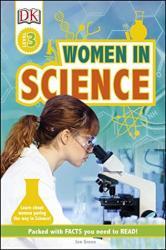
Women In Science is a book which covers the lives of outstanding
women in science. Written for readers from 7-9, this book inspires young
readers with the incredible wonders of science. Too, it highlights these
contributions to the field which have been made by women. A simple and
digestible read, this book would be ideal for any young girl interested in
the scientific field. I would recommend this book.
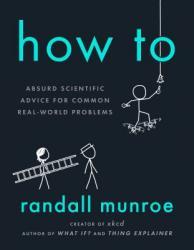
I’ve been a fan of Randall Munroe’s work for quite some time. This artist
of the xkcd webcomic certainly has a sense of humor that I appreciate, so I
looked forward to his latest book, How To: Absurd Scientific Advice for
Common Real-World Problems. While his previous book, What if? covered
hypothetical scenarios asked by the users of the internet, How To takes a
somewhat opposite approach by using extreme science to do the most basic
things imaginable. If you’re looking for simple answers, this isn’t the
book for you.
While it’s fun to think of the most complicated way to (for example) be on
time, often the joke goes on a little too long as the exact science behind
the absurdity is explained. There were times I felt I was reading a textbook
instead of a humorous treatise on how to cross a river. Even though I do
enjoy some extreme aspects of science, there is a limit to this enjoyment.
And perhaps this was because most of the science explained in this book felt
fairly rudimentary. Back of the envelope calculations can work for these
hypothetical situations, so it’s not like we needed the exact distance
George Washington could fling a silver dollar.
Despite its occasionally dry scientific explanations, the writing and
illustrations often had me laughing out loud. Many of the footnotes were
particularly hilarious. So while the content often felt like it was being
taken quite seriously, the slight tinge of humor always reminded me that the
whole exercise was to be as tongue-in-cheek as possible. If anything, this
book should give any reader a good sense of how we shouldn’t take the
simple solution for granted. After all, it’s probably much less
radioactive.
Some dry science covered in healthy layers of humor, I give How To 4.0 stars
out of 5.
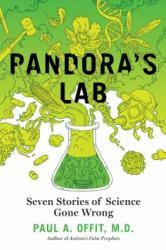
Science is an interesting realm. The public would sure like to think that all scientists are dedicated to finding the purest form of some scientific concept and modifying it to benefit society. However, some things become readily clear: not all societies are the same, and science can be abused. If anything, some of the worst scientific discoveries of the last few centuries were made with the best intentions. Unfortunately, more often than not, the full science wasn’t brought to the table, and plenty of people suffered because of it. Enter Pandora’s Lab, a selection of a few of the worst scientific discoveries and the stories behind what made them go awry.
Each of the scientific discoveries covered in this book had slightly different negative impacts on the world, but the reason why they became so notorious is almost ubiquitous. Science is no place for emotion, so finding quick fixes for something by using science can create worse problems than the ones that were initially there. Scientific rigor is also of utmost importance. Even if many of these horrific discoveries received Nobel prizes, hindsight showed skewed results from the start. Every new and fantastic technology created from scientific research should be scrutinized with a heaping of salt to ensure it can’t be abused.
On the flip side, ignoring sound scientific facts or not considering the full, worldwide implications of a discovery is just as dangerous. Ignorance is bliss, as long as the consequences don’t directly impact you. While we do have the benefit of hindsight, it’s essential to use the lessons presented in this book. We need to examine the science and technology being developed today and do our due diligence to make sure that they don’t inspire genocide or doom all of humanity to an unsustainable new way of life.
A grave lesson about the consequences of bad science, I give Pandora’s Lab 4.0 stars out of 5.
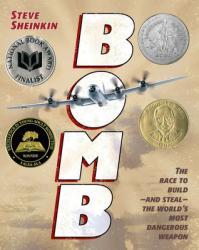
This book is perfect for young history enthusiasts, around the age of middle school. It's all about how the world's deadliest weapon was created, researched, spied on, and used. Explaining the race and allies of America to win the Cold War and beat Russia and Japan in creating the very first atomic bomb, this real-life story includes many famous scientists and new scientific discoveries. If you love action, science, and history, then I promise you'll love this book. It is super unpredictable and has a pretty sad ending when one of the countries wins. But who wins? Guess you're going to have to read to find out. Reviewer Grade: 8
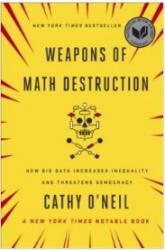
I love data. I love what it can show us as individuals and what it can show as society changes from year to year. Being able to trend my spending is just as useful to me as knowing how many people are participating in my National Novel Writing Month region. Because I’m always interested in seeing what pure numbers can show me about the world, I was intrigued to find this book, Weapons of Math Destruction. While I had already heard many of this book’s conclusions, it was interesting to read about the algorithms that work silently behind the scenes of our society and how nobody can really control or change them.
I’ll agree that it’s terrifying to have decision-making boiled down to a number popped out of an algorithm that decision-makers just blindly trust without understanding the rules of causality or correlation. People are messy, so I understand how finding a single aggregating number to represent an individual is a simple solution. However, I agree with the author’s outrage that these numbers are putting the disenfranchised into a toxic and harmful feedback loop. It’s difficult enough to survive out there without an arbitrary number determining your fate and you having little to no ability to change it. Of course, this point is pounded home about one or two times too many in this book.
From personal experience, I have received a brief glimpse behind the curtain into how these algorithms work. When I got married, I moved from one zip code to another in the same town. At that point, my car insurance premiums suddenly went up. Why? Because I was in a zip code filled with people who were “bad drivers.” Despite nothing about me or my car changing, now I was suddenly a bad driver. I do think there are some substantial reforms needed in these algorithmic systems. Still, I don’t necessarily think the solutions provided by the author are the right answer (they seem mostly based on the author’s personal opinions and biases).
A repetitive look into the dangers of blindly trusting algorithms, I give Weapons of Math Destruction 3.5 stars out of 5.
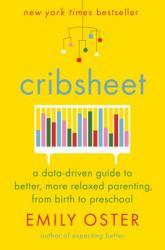
As a new parent and an engineer, I am skeptical when so much advice about raising a baby comes from hearsay or anecdotal evidence. So many controversial topics abound in the early years of a child’s life that I wanted to make sure I was basing my decisions off the scientific data instead of mere wives' tales. Fortunately, Cribsheet: A Data-Driven Guide to Better, More Relaxed Parenting, from Birth to Preschool exists. Unfortunately, it has merely proven to me that there haven’t been enough rigorous studies to show any causal relationships to make my parenting decisions any easier.
Similar in the tactics of Zero to Five (whose author was a science journalist), Cribsheet takes the experience of an economist and pits it against the studies that have been performed to determine which of them are legitimate enough to be trusted. In most cases, it seems that plenty of research into the benefits and detriments for children (and parents) merely comes down to broad Gaussian distributions. That is, there are no correlations between two drastically different approaches on the outcome of the child’s health or future behavior. This is undoubtedly a relief to know, if for no other reason than to give me free rein to parent as I see fit (with my wife's input, of course).
One mantra that Cribsheet seems to reiterate is that—even if data supports a beneficial outcome—if the parents’ mental health issues and/or anxiety increase because their lifestyle cannot support it is not worth the small percentage points of benefit to the child. Basically, the studies that do support something like breastfeeding show that these desired outcomes are in the short term and won’t harm the child if this particular parenting method isn’t chosen. While the data absolutely supports one or two items of interest, everything else is so loosely researched as to prove nothing in one way or another.
A great book about statistical rigor in childhood studies, I give Cribsheet 4.0 stars out of 5.
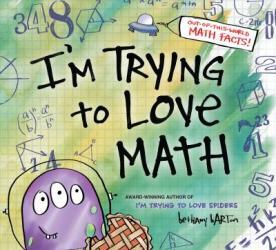
Using abundant humor, Bethany Barton makes this book about math interesting to all. Her facts and explanations show how math is used in our everyday lives and why it’s important. Math is used all around the world and even in space. We used math when we bake cookies, make music, and explore. It’s part of many of the patterns we see in nature. Since math is part of so many of the things you already love, you may just already love math.
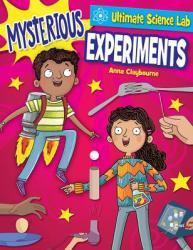
There’s nothing magical about these experiments – just everyday science. Experiment with raisins, sugar cubes, eggs, and more. You can just use simple materials that you already have around the house to test things out and learn something too.
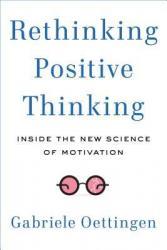
In her book, Ms Oettingen teaches readers how to use the science of positive thinking to their advantage. After years of research, she has found that mere "positive thought" does not produce optimal results for people's lives. Instead, a specifically targeted approach to positive thought and positive action is best. This is what she teaches readers. I would recommend this book to people seeking to improve their lives through targeted approaches of thought and action. Readers 16 and up are appropriate.
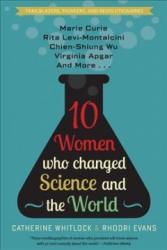
In her book, "10 Women Who Changed Science and the World", Catherine Whitlock authors the biography of ten women who were deeply influential in science. For each woman, she writes a biography of their life and what significant contribution they made to their field. This book is well-written and informative, and neither too long nor too short for each woman's biography. I would recommend this book for readers of ages 13 and up. This book should interest those interested in women's contributions to science.
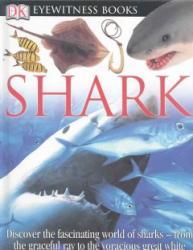
In her book about sharks, Ms Macquitty teachers readers all about the fascinating salt-water creatures. The book is well done for young ages, with plenty of interesting facts. There are also many pictures to illustrate her points. Well researched and informative, this book is sure to engage young readers.
I would recommend this book to any young readers from 5 through Elementary school. Any children fascinated with sharks and wishing to learn more will be pleased by this read.
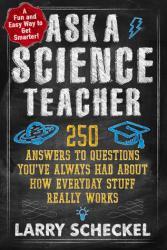
In his book "Ask a Science Teacher", Larry Scheckel lists 250 science questions and answers them all in detail for readers. Each series of questions is divided under sections. For example, there is a section about Sound and Music and a section about Chemistry. He spans a broad range of scientific topics, from biology in the question "How many cells are in the body?" to history of science in question "Did Issac Newton develop calculus?" Mr. Scheckel answers the questions thoroughly with interesting detail. He engages readers. I would recommend this book to anyone with science interests and questions. This book is appropriate for ages high school and up.
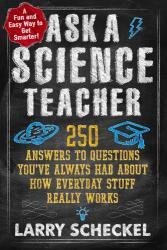
In his book "Ask a Science Teacher", Larry Scheckel lists 250 science questions and answers them all in detail for readers. Each series of questions is divided under sections. For example, there is a section about Sound and Music and a section about Chemistry. He spans a broad range of scientific topics, from biology in the question "How many cells are in the body?" to history of science in question "Did Issac Newton develop calculus?" Mr. Scheckel answers the questions thoroughly with interesting detail. He engages readers.
I would recommend this book to anyone with science interests and questions. This book is appropriate for ages high school and up.


